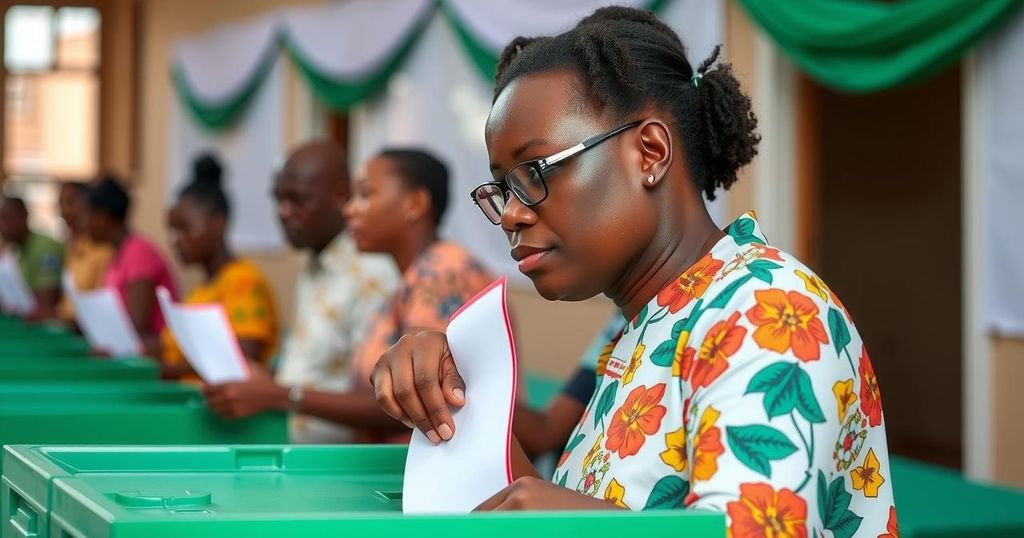Ghana’s presidential and legislative elections opened against a backdrop of severe economic challenges, with 18.7 million voters registered. The race features Vice President Mahamudu Bawumia and former President John Dramani Mahama, yet public sentiment remains skeptical about meaningful change. Economic instability, marked by high inflation and unemployment, and issues like illegal gold mining further complicate the electoral landscape.
Polling stations across Ghana opened their doors on Saturday for the country’s presidential and parliamentary elections, a pivotal moment for democracy within a region afflicted by political instability and violence. Approximately 18.7 million registered voters are participating in an election overshadowed by one of the most severe economic crises the nation has faced in decades. Despite the high stakes, many citizens feel disillusioned, with the leading candidates offering little hope for substantial change.
Once regarded as a paragon of democratic governance, Ghana has experienced a significant decline, characterized by a struggling economy marked by soaring inflation and unemployment rates. A recent Afrobarometer survey indicated that 82% of Ghanaians believe their nation is on the wrong path, a sentiment reflecting widespread frustration.
This election features twelve candidates, yet the contest has effectively narrowed to a rivalry between Vice President Mahamudu Bawumia of the ruling New Patriotic Party (NPP) and former President John Dramani Mahama, the opposition leader from the National Democratic Congress (NDC). Both candidates are faced with the formidable task of addressing an economy that has faltered under their leadership and shaped public perception of their respective parties.
As the NPP campaigns on the premise of continuity and stability, Zawumia promises to build upon existing economic policies. Conversely, Mahama advocates for a comprehensive ‘reset’ of governance and economic structures, proclaiming that the country requires significant reforms across various sectors to recover.
Despite the lively political atmosphere evidenced by campaign rallies and public displays of enthusiasm, the realities of economic hardship loom large. The nation’s default on a majority of its foreign debts and the ongoing crisis that has driven inflation rates to unprecedented levels challenge the efficacy of both candidates’ proposals.
The illicit gold mining, locally termed ‘galamsey,’ remains a pressing concern among voters. Ghana, Africa’s leading gold producer, has witnessed rampant illegal mining activities that have not only harmed the environment but also contributed to the unemployment crises as citizens seek alternate sources of income amidst economic despair.
Ghana has historically been viewed as a stable democracy in West Africa, with a reputation for peaceful elections and governmental transitions since the re-establishment of multiparty politics in 1992. However, recent years have brought significant challenges, most notably a severe economic downturn characterized by high inflation and rising unemployment, prompting widespread discontent among the populace. The upcoming elections are seen as a critical juncture for the country as it grapples with these economic issues while seeking to maintain its democratic integrity amid regional instability and political unrest.
In conclusion, the Ghanaian election represents a crucial test of democracy against a backdrop of economic turmoil. With a significant portion of the electorate feeling disenfranchised, both candidates must articulate viable solutions to restore confidence in governance and address the pressing economic issues. As voters head to the polls, their decisions will reflect their aspirations for change and their hopes for a more prosperous future amidst considerable challenges.
Original Source: www.voanews.com






